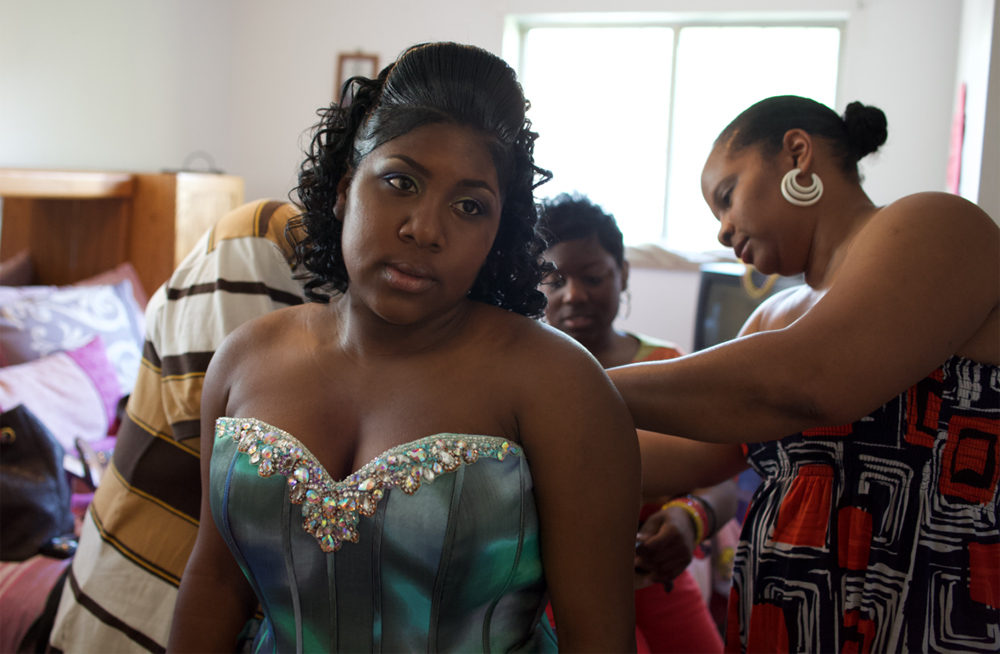One of the slyly brilliant decisions Roni Moore and James Blagden made in the wildly fun “Midnight in Paris” is to let the marching band at Flint Northern High School in Flint, Michigan set the score for the enthralling portrait of the school’s prom. The lack of professional polish feels just right to tell the story of kids who aren’t 100 percent sure of what to expect from the big night, but those big, brassy anticipatory trumpets blaring The Temptations’ “Get Ready” can’t be denied. It also speaks to tradition, the fact that no matter where or what year the prom takes place in, the rituals around it have been the same, which is why you’d never know that Moore and Blagden actually shot “Midnight in Paris” in 2012 if there weren’t a title card announcing it up front. (To explain the film’s arrival seven years later when it isn’t a longitudinal project, the co-directors explained at the film’s premiere at True/False that simply “life got in the way” after finishing up a three-hour rough cut, though you suspect it wasn’t other obligations so much as an overabundance of care that went into the 75-minute fine cut gem.)
Although the intervening years haven’t been kind to Flint, “Midnight in Paris” doesn’t ever explicitly address the egregious neglect of the largely African-American community that might now come to mind from hearing its name, but it does give invaluable perspective on how people keep going in a place that can seem as if it’s been left behind by the larger world. A stray comment from one senior who is looking forward to prom for the sole reason it’ll get her out of the house for a night is especially telling and Moore and Blagden’s seemingly innocuous establishing shots of commercial streets absent of much foot traffic become powerful when contrasted with people buzzing about inside, illustrating how the confines of a city made to feel small make the prom all the bigger when it reaches inside every household and small business. With previous generations able to connect to the same experience, a mix of good-natured ribbing and warning from parents and grandparents mixed with the students’ own mischievous thoughts that come from being left alone for once create outsized anticipation around the big night and by the time you see what feeling Flint Northern can give its students on modest means, the delight is overwhelming, even if it doesn’t match how large it looms in everyone’s imagination.
Over the course of the week leading up to the prom, Moore and Blagden ask students about what they think is going to happen as dresses and corsages are picked out and a handful deal with the rule that at Flint Northern only seniors who are set to graduate are allowed to attend, but the stroke of genius is slipping into the limos with the couples after they’ve left the dance when expectations are confronted with reality. In a film where only one character is cheekily identified — Uncle Larry, a much talked-about relative of a student known for driving around in a Benz, you’ll surely recognize everyone else as these teens decide to spend their evening with unprecedented freedom opting to enjoy a little more time as kids when more adult situations await. With “Midnight in Paris,” Moore and Blagden extend that fleeting moment of unbridled joy just in between to audiences everywhere and blessedly make it last just a little bit longer.
“Midnight in Paris” does not yet have U.S. distribution.




